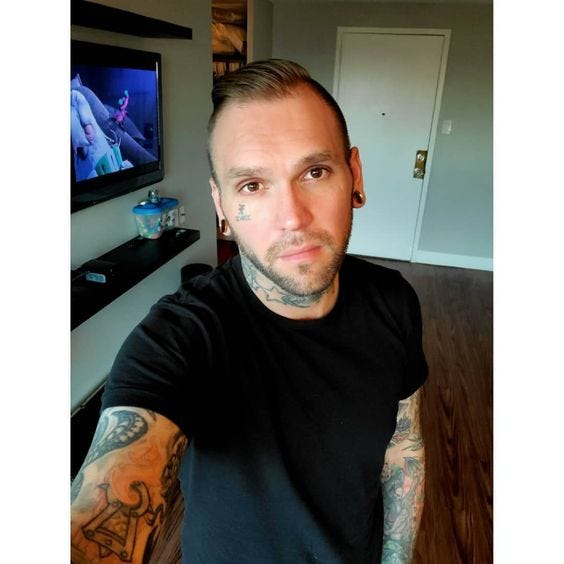Daniel Brummitt on TikTok
Daniel Brummitt on TikTok - Social Media Marketer | Online Publisher 📚 📲 IFB
https://www.tiktok.com/@danielbrummitt?
https://danielbrummitt.com/links
The optimism of youth!
As we enter 2020, it’s becoming increasingly clear that AR platforms are the future of social media. While platforms like Facebook and Instagram are great places to keep in touch with friends and family, they are less and less suited to help users promote themselves or their brands. Platforms like Twitter and Pinterest are great for self-expression and sharing creative content, but they are less focused on video—and video is absolutely crucial to the success of AR platforms.
So where do designers and marketers go next? To the future-forward AR platforms like Bit.Tube, TikTok, and Mirrord to name a few. These platforms combine the video,
photography, and social elements of Instagram with the graphics and gaming elements of VR platforms like Unity. They’re also completely free to use—although you may find yourself tempted to buy props or add-ons as you create your content.
As a designer, creating content for these new AR platforms is a great learning opportunity. Having worked with several of them in my capacity as a freelance designer and consultant, I have a few suggestions for how to get started and make the most of your experiences on these platforms.
I wrote this with ContentBot - a tool that lets you generate unique AI content with a few small inputs.
Social Media Marketer | Online Publisher 📚 📲 IFB"Captain's Log: January 14, 2025""Captain's Log: January 14, 2025"
"Captain's Log: January 14, 2025"
If TikTok were my livelihood, I would be very frustrated with my government right now. However, from a security standpoint, it is indeed unwise to allow another government access to so much of our data. This concern extends beyond TikTok to include various products and software of household electronics that require information like Wi-Fi credentials.

 Tiktok failed to load.
Tiktok failed to load.Enable 3rd party cookies or use another browser
Additionally, it is well-known that Israel has a significant intelligence apparatus and is a major data collector that monitors U.S. citizens. They resemble modern-day Stasi. This issue is not solely related to the Israeli government or deep state; it also involves collective behavior within the Jewish community. I want to clarify that I do not harbor hatred towards Jews, but I am increasingly aware of the perceived harm that has resulted from their presence in the country. While not all individuals within the community are responsible, there seems to be a collective profit derived from their activities, which may negatively impact Americans' free speech and ability to voice complaints. Given that they now have a homeland, one may wonder why they continue to reside here.
Jews express concerns about antisemitism in America, but they may not fully grasp the sentiments of many Americans, as open discussions on this topic are often discouraged. The reality of antisemitism may be more severe than they realize. To provide perspective, a significant number of Americans might prefer welcoming the entire continent of Africa rather than having just one Jewish individual migrate here.
The Overrepresentation of Jewish Individuals in the U.S. Legal Profession
Jewish individuals make up about 2% of the U.S. population, yet their presence in the legal profession is disproportionately high. Estimates suggest that 32.7% of U.S. attorneys are Jewish. In New York City, a statistic from the 1990s indicated that 50% of law firm partners were Jewish, reflecting their significant role in the industry. This statistic u…
How Whites Are Being Pushed into 'Manual Labor Slave Trades'
I noticed the narrative promoting trade schools for white individuals long before Elon’s breakdown—perhaps a PR stunt—regarding H1-B status for Indians, while simultaneously condemning American exceptionalism and labeling us as low IQ barbarians. As someone who grew up in a lower to middle-class neighborhood, I resonate with Elon’s sentiments, especiall…
The Illusion of Freedom:
Imagine you're living in a house, but you don’t own the keys to the door. Someone else controls the locks, the food in the fridge, and whether or not you can turn on the lights. They’ve got the power to give you what you need—or take it away. You're not free. This is the reality for many in an economy where essential resources are controlled by a few po…






